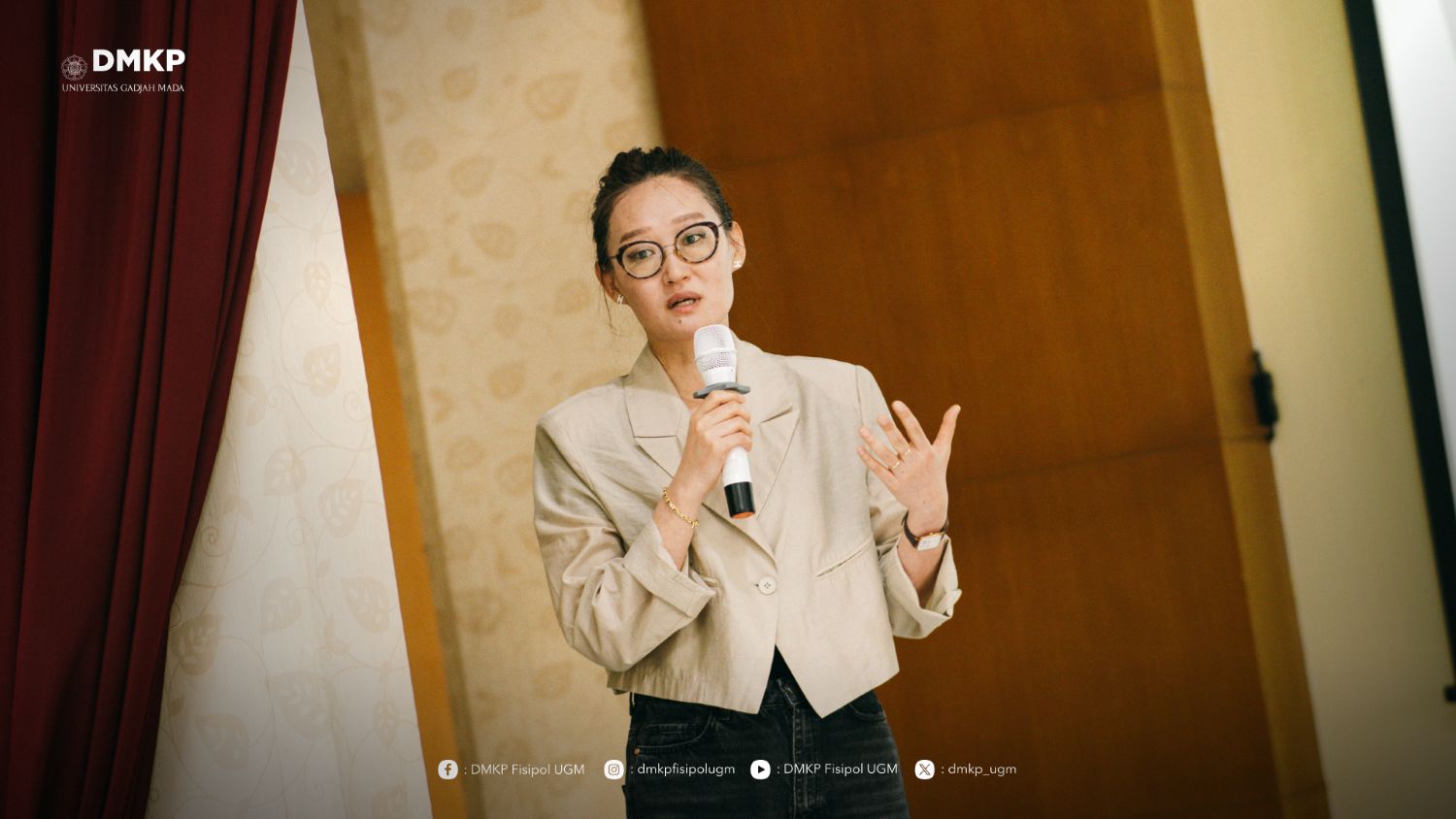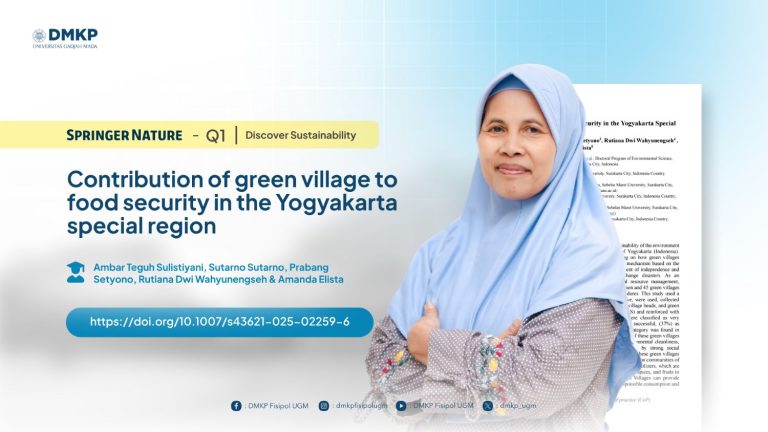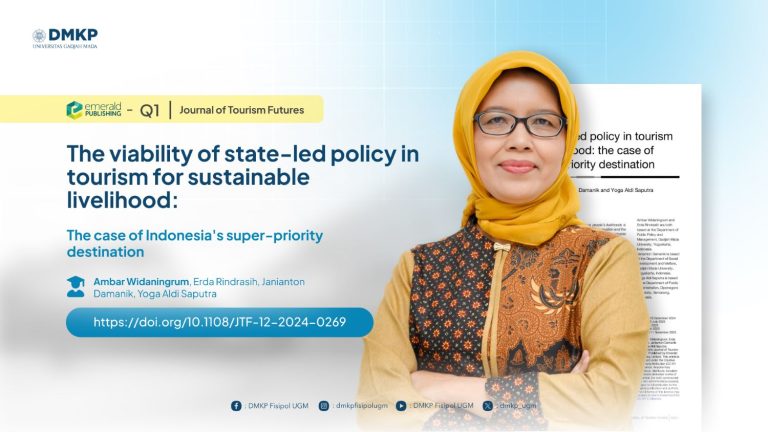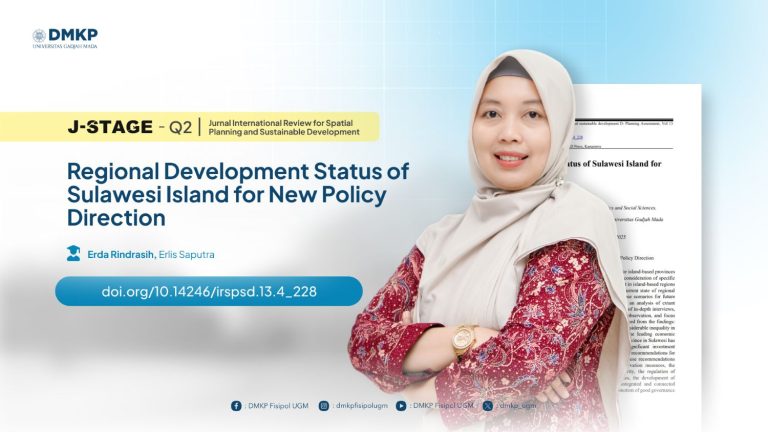A studium generale held through the collaboration between DMKP UGM and Yonsei University, South Korea, presented a comparative discourse on development policy in Indonesia and South Korea through the lens of living labs and civic participation.
The Department of Management and Public Policy (DMKP) at Universitas Gadjah Mada reaffirmed its commitment to strengthening global perspectives in public policy education by organizing a studium generale titled “Development Policy for Prosperity: Case of Indonesia and South Korea” on Tuesday, May 27, 2025. The event was part of a series of joint lectures in partnership with the Institute for Poverty Alleviation and International Development (IPAID) at Yonsei University, South Korea.
Held at UGM’s Faculty of Social and Political Sciences (FISIPOL), the event brought together speakers from both Indonesia and South Korea to discuss cross-national development challenges and the potential for collaboration in formulating inclusive and sustainable public policies.
One of the key concepts highlighted was the living labs approach. According to Prof. Sang Sup Ha, living labs are open innovation ecosystems in real-life settings that place end users—or citizens—at the center of the innovation process. This approach involves multiple stakeholders, including government, academia, industry actors, and civil society, to collaboratively design, test, and evaluate solutions to complex social issues.
In his presentation, Prof. Sang Sup Ha shared a case study on housing issues faced by North Korean defectors in South Korea. Based on findings from his North Korean Studies class, the living labs approach was employed to explore solutions to integration and welfare challenges experienced by defectors. Students were divided into groups and tasked with identifying specific problems, analyzing their root causes, and designing experimental interventions as solutions.
The outcomes were diverse and applicable. One group proposed organizing a futsal league as a social outlet for North Korean male defectors aged 40–50 experiencing social isolation. Another developed an educational game based on North Korean geography, which not only created job opportunities for defectors but also leveraged their local knowledge. Other solutions included nurse training at Hana Center community hubs, an app-based learning platform for defector children, and an AI-driven mentor-mentee program to support mental health issues.
Through this activity, students came to see North Korean defectors not merely as aid recipients but as potential contributors to South Korea’s social development. The findings demonstrated how student involvement in living labs could transform their perceptions of marginalized groups and foster critical awareness of the complexities within social integration policies.
Dr. Dede Puji Setiono, a lecturer from DMKP, emphasized that civic learning is a fundamental component of development. He explained that involving younger generations in deliberative processes can enrich development policy outcomes, especially by highlighting needs that have often been overlooked. Furthermore, he underscored the dual role of universities—not only as knowledge producers but also as incubators of citizenship.
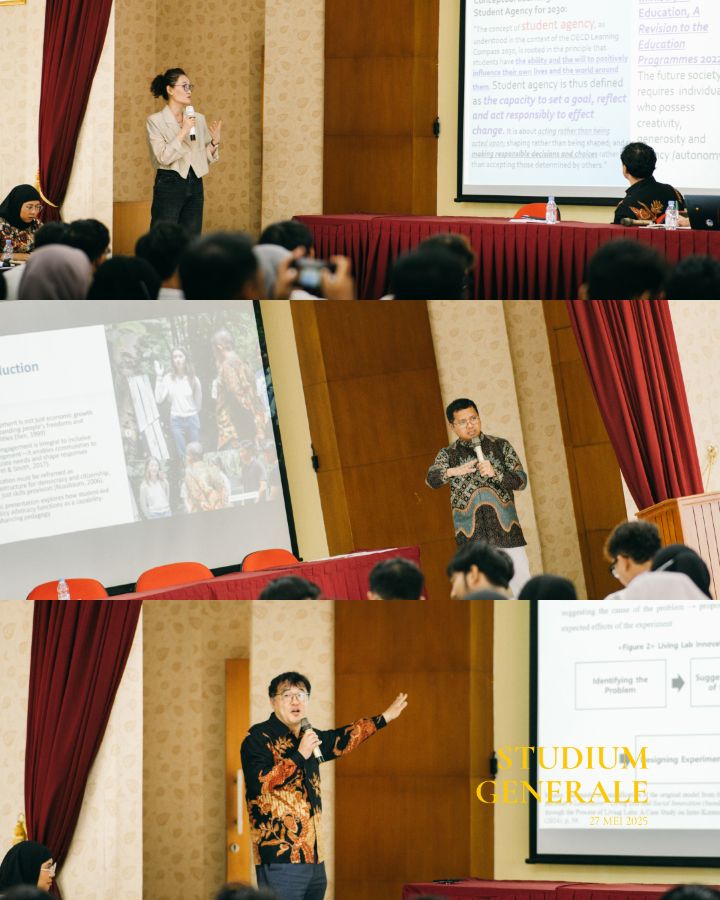


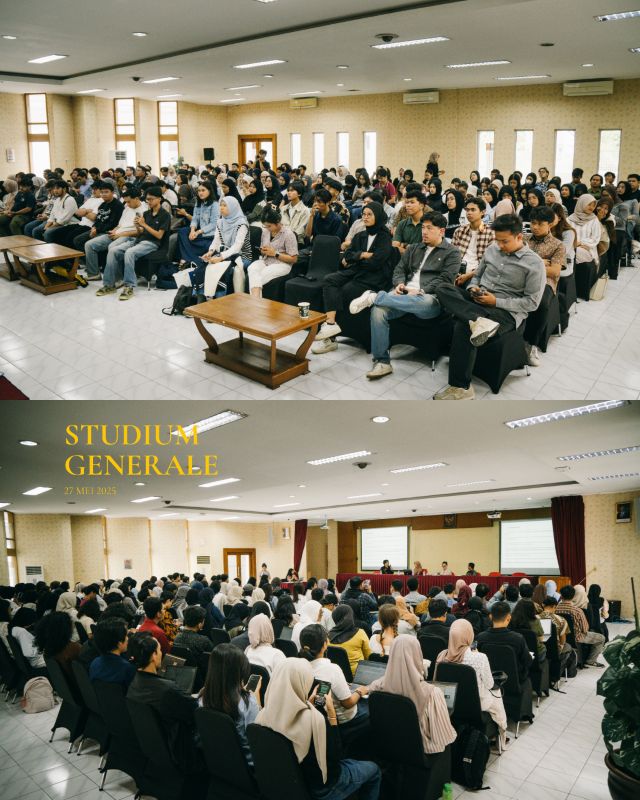
This event marked the conclusion of the two-day Joint Lecture series between DMKP UGM and Yonsei University. The first day featured student presentations on fieldwork projects based on the living labs approach. Altogether, the program was designed to promote cross-cultural knowledge exchange, strengthen international academic networks, and support the internationalization of UGM’s public policy curriculum.
Writer: Fahri
Photo: Fahri, Fauzi

